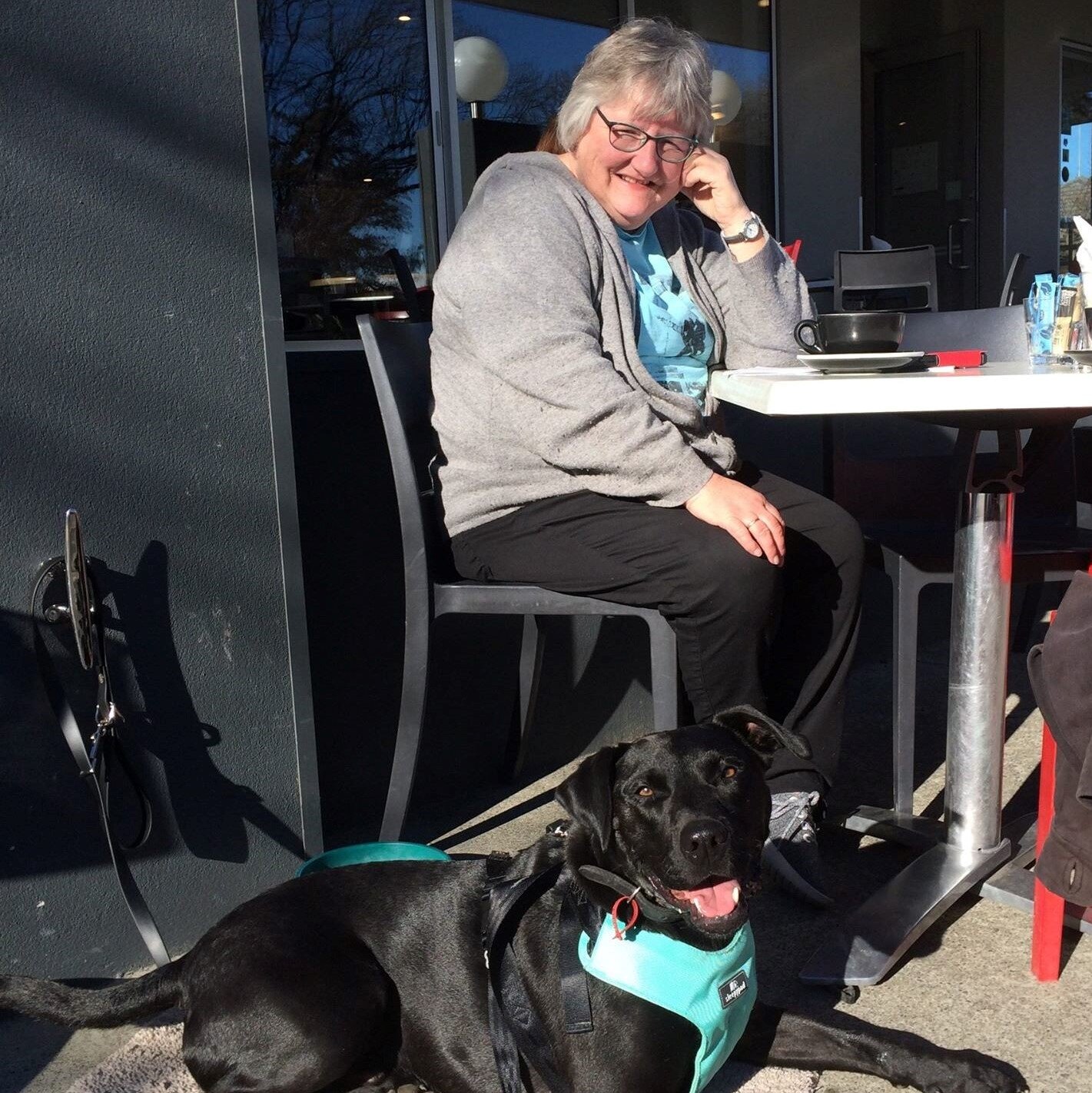Want to learn how to choose the best puppy school for you and your puppy? In this episode, learn what to look for in a puppy school to set your puppy up for the best possible start to life.
Summary
There are many options for puppy school training and it can be difficult to know which puppy school to choose.
A reputable puppy school will provide you with the education, support and flexibility to navigate puppyhood, prevent behaviour problems from coming up further down the track and create a calm, well-behaved puppy who fits easily into your family.
In this episode, learn what to look for in a puppy school so you can choose the best option for you and your puppy.
If in-person puppy school isn’t available, choose a reputable online puppy programme.
Watch the video to get the full training.
Hot News and Deals!
1. Get the Puppy Pre-School Programme!
If you want to learn how to raise a calm, well-behaved puppy, the Puppy Pre-School Programme is the puppy training blueprint you need. The Puppy Pre-School programme will guide you through how to solve all those puppy problems and remove the overwhelm with personalised support from Kelly, your Puppy Expert, so you can breeze through puppyhood. Join over 5,000 new puppy parents who have completed the Puppy Pre-School Programme and teach your puppy habits that lead to long-term success! Join in-person Puppy Pre-School here or online Puppy Pre-School here.
Inspirational Quotes
Full Transcript
Welcoming a new puppy into your family is a really exciting time because we all know the amount of joy that a puppy brings!
Bringing a new puppy into your life is a huge investment though, so it’s important that you take time to do your research before choosing your puppy. Being armed with the right information can help you choose a happy, health and well-adjusted puppy and help avoid costly health and behaviour problems further down the track.
Now, when you’re choosing the breeder and your puppy, there are three main areas of a puppy’s background that you want to focus on. By asking the breeder specific questions in these areas and by carefully considering their answers, you’ll get a good idea about whether the breeder is ethical, whether their priority is raising genetically and behaviourally sound puppies and whether they genuinely care about their dogs and puppies. Or you’ll get an idea of whether their priority is just making a quick buck out of the puppies and moving them on as quickly as possible, without ongoing support to new puppy parents and without putting good practices in place.
With the help of these questions and answers, you’ll also get a good idea about what type of puppy to expect and whether they are likely to be a good fit for you, your family and your lifestyle.
Firstly, we need to look the puppy’s genetics – that’s the puppy’s parents and grandparents.
Secondly, we need to look at the environment that the mum is kept in when she is pregnant - this includes any stress that she was under when she was pregnant because this can be passed down to the puppies plus we need to look at the environment the puppies are raised in.
And thirdly, we need to look at the experiences of the puppies after they were born – both positive and negative – because these experiences shape how they feel about the world around them.
Although we don’t have any control over these factors, it’s really important that you find out as much information on these from the breeder and that you know exactly what questions to ask them.
You’ll also want to ask the breeder how they choose homes for the puppies, the level of short and long-term support is available to new puppy parents and what documentation they provide before and after the purchase of the puppy.
Now, before you contact the breeder, I’m assuming you’ve carefully considered the size, energy level and type of dog who would fit into your family and your lifestyle. Once you’ve narrowed your search down to a few breeds, this is the time when you need to contact the breeder and ask them these 10 questions that I’ve put together for you.
If the breeder is reputable and responsible then they should be able to answer these questions willingly and easily. But if they can’t answer or aren’t prepared to help you with your questions, or if you’re not satisfied with the information they’re giving you, then quickly move on and continue your search… there are plenty of other options out there!
So, here are the questions to ask the breeder before choosing your puppy:
1. Did the breeder plan for this litter and how many litters has the mother had?
A responsible dog breeder plans each pregnancy ahead of time and knows that there’s enough demand for the puppies to ensure they all go to good homes.
Ask the breeder if the pregnancy was planned, how many litters the mum has had because she shouldn’t have any more than five over her whole life and ask what they do with any puppies who aren’t sold – a responsible breeder will keep the puppies until they find a suitable home.
2. What are the living conditions for the dogs and can you visit?
To avoid supporting puppy farms, it’s vital that you visit the puppy at the place where they were born. The place should be clean and there should be enough space for the puppies and the breeding dogs. Check that the puppies and breeding dogs are friendly towards you and each other and ask about the breeding dog’s behavioural history, including whether they are fearful towards anything because this can be passed down to the puppies. If the breeder won’t let you visit then find a different breeder and never buy a puppy from a pet shop.
3. Does the breeder screen for any known disorders or anatomical problems specific to the breed and exclude dogs with problems from breeding?
Different breeds are predisposed to different genetic disorders or diseases. Find out what genetic disorders or diseases your chosen breed is predisposed to, ask the breeder what steps they’ve taken to prevent them and ask them to provide documentation showing the tests that have been carried out on the breeding parents and grandparents, if possible. If you’re considering a purebred dog, make sure there are no close relative matings to minimise the risk of inherited problems.
4. What are the temperaments of the parents (and grandparents)? Can you meet the parents and see how they interact?
Ask the breeder to provide information on the temperament of the parents and grandparents. You won’t always be able to meet the breeding dad, but it’s essential you see the puppies interact with their mum – is she caring or aggressive? Observe how the puppies interact with their littermates – are they hyperactive, calm, confident or fearful? This will give you useful information to help you decide whether the personality of the puppy is right for you and your family.
5. Where are the puppies raised and what socialisation experiences are provided by the breeder before they go to their new homes?
Early socialisation experiences are critical in helping develop a confident, adaptable and resilient puppy and there’s so much that a breeder can do to set your puppy up to the best start to life possible. Is the whelping box in the main area of the house so the puppies are exposed to smells, sounds, people and other animals? What enrichment is provided to the puppies? Are they crate trained? Have the experienced basic husbandry and handling? Has the breeder started to teach separation from their mum and littermates? You’ll need to continue this education after you bring your new puppy home but the breeder should be giving them a head start.
6. Are the puppies weaned when they go to their new homes?
It’s important for puppies to stay with their mum and littermates at least until they are fully weaned, at around 7 weeks of age, and they shouldn’t be released to their new homes until 8 weeks of age. There may be some exceptions due to medical reasons but if the breeder mentions releasing the puppies earlier than 8 weeks, this can negatively impact their development.
7. Does the breeder screen all interested applicants to assess whether they’d be a suitable match for the puppies?
Reputable breeders will carefully screen interested puppy parents to ensure they are placing their puppies in the right homes. They will ask you questions about your family environment, lifestyle and why you’re interested in that particular breed and will only release puppies to suitable applicants.
8. Can you get references from previous buyers and are they open to talking with you about their puppy and a second opinion of the breeder?
Meeting dogs from the breeder’s litters and talking with previous buyers can give you the opportunity to get a second opinion on the breeder and decide whether they are right for you.
9. Is there a contract of sale and can the breeder provide a copy for you to review?
A contract of sale will state the responsibilities of both you and the breeder so you’re clear on what to expect. Asking to review the contract prior to selecting your puppy will ensure you’re comfortable with the terms and conditions.
10. Does the breeder provide ongoing support and information after purchase?
The breeder should provide information about diet and nutrition. They should microchip the puppy, provide their first vaccination, complete a vet check and complete a worming and flea treatment before sending them to their new homes. A reputable breeder will keep the lines of communication open after puppies go to their new homes and they should also offer to accept returned puppies if their new home isn’t suitable or there are health problems from an inherited disorder.
Selecting a puppy isn’t just about looking at photos. There’s so much more to it than that. It’s about fully understanding the puppy’s genetics and any health risks, carefully looking at the environment they’re raised in, asking the breeder questions about the socialisation experiences they’re exposed to in their first few weeks and finding out what level of support the breeder will provide you with.
Go through these ten questions with any prospective breeder so you can choose the best puppy for you and your family and be confident that they’ll have the best chance at a happy and healthy life ahead!












